Business & Finance
Draft: How to Choose the Best Facebook Ads Agency for Small Businesses

Most small businesses don’t realize the problem until it’s too late. You hire a Facebook ad agency, expect results, and months later, you’re staring at generic campaigns, vague reports, and a budget that’s vanished.
The truth? It’s rarely the platform. It’s the agency.
We’ve seen this play out over and over. That’s why this guide is built to help you choose right. We’ll show you what good agencies do differently—and how to find one that works like a partner, not a vendor.
Why Choosing the Right Partner Matters
Facebook and Instagram ads are powerful—but unforgiving when mishandled. A Facebook ad agency can help a small business:
- Turn a $1,000–$1,500/month budget into consistent revenue
- Optimize creative and targeting to reduce cost per click by 40% or more
- Build a testing loop that creates learning and scales faster
But bad ones?
- Use generic targeting (“people who like tech”) that never converts
- Create ad creatives that don’t reflect the product’s value
- Send fluffy reports full of impressions but no insight
The opportunity cost isn’t just ad spend—it’s lost momentum, misread data, and missed learning.
What Makes Facebook Ads Tough for Small Businesses
1. Limited budgets mean less room for error
Small businesses often run ads with $1,000–$2,000/month in spend. Every misfire, like a wrong audience or weak creative, burns cash. For example, a Facebook ad agency that ignores audience exclusions might waste $400–$500/month showing the same ad to past buyers.
2. Lack of in-house marketing talent
Most SMBs don’t have a full-time performance marketer. So they rely on the agency for guidance. If the agency uses templated strategies without product context, ads flop. A SaaS tool for freelance designers can’t run the same playbook as a B2C skincare brand.
3. Little to no creative testing
Agencies that deliver only one version of ad creative limit your chances to find what works. Real growth comes from testing different hooks, formats, angles. A D2C brand saw 2x conversions just by switching from product-heavy visuals to UGC-style demos.
4. Misleading or incomplete reporting
Agencies that report only on CTR or impressions aren’t helping you grow. Small business owners need to see the link between spend, clicks, conversions, and revenue. A click-heavy ad that brings zero leads is still bad.
5. SMB clients often get deprioritized
Many agencies chase bigger retainers. Smaller accounts get handed off to interns or juniors, which means less thought and weaker results. One founder found out their account was managed by someone with 2 months of experience—after 3 months of poor ROAS.
What Good Agencies Actually Do
Let’s break down the real signs of a performance-focused agency:
- They focus on Meta, not every platform
You want a specialist, not a generalist. Meta changes fast. Agencies that keep up with creative trends, algorithm shifts, and ad policies are more effective. - They show results for similar businesses
If you’re a $2M/year DTC brand, look for examples with similar budgets, audience types, and funnel lengths. A B2B case study for an $80K/month SaaS doesn’t help you. - They set up a learning agenda
Great agencies define what to test—copy, image style, CTA, etc.—and plan sprints to gather insights. This isn’t random A/B testing; it’s structured, strategic, and measured weekly. - They explain performance weekly
Whether async or in calls, good agencies share what’s running, why it’s working or not, and what’s next. It helps you connect the dots and trust the direction. - They show curiosity about your business
If they’re not asking about LTV, margins, or past campaign results, they’re not optimizing your funnel—they’re just posting ads. - They update creatives often
Ad fatigue is real. Great agencies launch new ads every 10–14 days. One eCommerce brand saw the cost per purchase drop 37% after cycling 4 new creatives per month. - They talk to you like a business partner
Not just ad talk. Good agencies also ask about landing pages, website load speed, and how leads get followed up. Because everything affects ROAS.
Red Flags to Avoid
“We guarantee 3x ROAS”
Red flag. ROAS depends on product, funnel, market, and many moving parts. Anyone who promises returns without a plan is overpromising.
No breakdown of how they test creatives
Ask: Do you test angles, hooks, and formats separately? If the answer is vague, expect rinse-repeat content that burns out fast.
They run your ads on their own account
You won’t see performance history, pixel data, or creative benchmarks if you leave. Always own your ad account.
They’re not upfront about fees
Make sure you know what percentage of your spend goes to ads vs. agency fees. Agencies that dodge this are hiding poor ROI.
They push 6-month retainers without trials
If they ask you to commit before proving fit, they’re prioritizing revenue, not your results.
“Look for agencies that talk about ‘learning per dollar,’ not just ‘return per dollar.’ That’s how you scale.” — Nick Shackelford, Structured
Questions to Ask Before Signing
1. What’s your average client ad spend?
This tells you who they’re used to serving. If they mostly handle $20K/month clients, your $1.5K/month account may get lower priority or reused strategies. Look for agencies used to managing accounts within your range—$1K–$5K/month is typical for SMBs.
2. Can I meet the person managing my account?
Many agencies have a sales rep close the deal, but hand off work to a junior team member. Always insist on meeting your point of contact before signing. Ask about their experience running Facebook ads and how many clients they handle. You want a responsive, skilled account owner—not just a middle manager.
3. How often do you test new creatives?
Some agencies build 1–2 ads and let them run for weeks. That’s a red flag. A high-performing agency should test 2–4 new creatives every 10–14 days, track results, and scale what works. Ask for a sample creative testing plan or recent example.
4. What’s your standard reporting format?
Vague spreadsheets with CTRs and CPCs don’t cut it. Ask for a sample report. A strong one will highlight cost per result, ROAS, spend trends, winning creatives, and what’s next. Bonus if they use video walkthroughs for better context.
5. Will you use my ad account or yours?
Some agencies insist on using their own accounts. Avoid this. You should retain full control of your ad account, pixel, and history. It ensures data continuity even if you stop working with them.
6. How do you decide which ads to scale or kill?
If they say “whatever gets clicks,” dig deeper. Look for a structured process based on performance benchmarks—like CPA, ROAS, CTR drop-off, and ad fatigue signs. Ask how they document learnings and turn tests into decisions.
7. Do you optimize for landing pages or only ads?
Many agencies stop at the ad level. But if your landing page is slow or confusing, conversions drop. Ask if they offer basic CRO suggestions—like layout, copy, or headline changes—to improve performance beyond the click.
8. What happens in the first 30 days?
You want a clear onboarding and launch plan. Look for a roadmap that includes account access setup, creative audits, first tests, reporting timelines, and performance targets. If they can’t outline the first month, be cautious.
Vetting Checklist
✅ Specializes in Facebook ad management
✅ Runs 2–3 creative variations every 10–14 days
✅ Shares reports with metrics that connect to outcomes
✅ Doesn’t push fixed retainers up front
✅ Asks about your margins, CAC goals, and funnel
✅ Reports weekly or bi-weekly
✅ Uses your account, with access retained by you
✅ Transparent about who manages your ads
✅ Shows real examples—not vanity logos
Final Thoughts
Small businesses don’t just need ads. They need clarity, insight, and results that build month after month.
Pick an agency that behaves like a partner. One that tests smart, reports clearly, and learns fast.
Every dollar should either bring in revenue—or bring back insight. Anything less is wasted spend.
Don’t settle for fluff. Ask hard questions. And if the answers sound templated, it’s probably not the right fit.
Want help reviewing a proposal? We’re happy to look at it. No sales pitch—just a second opinion.















